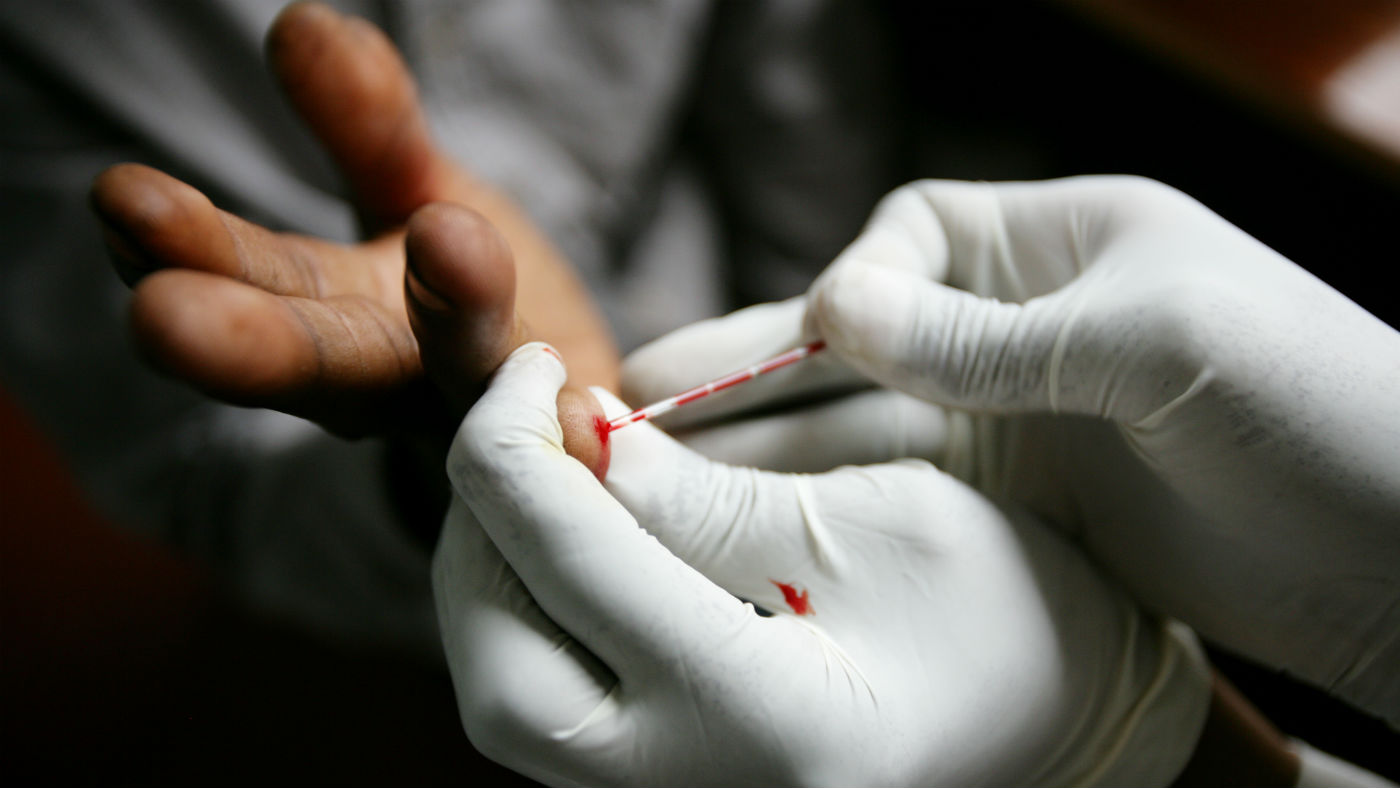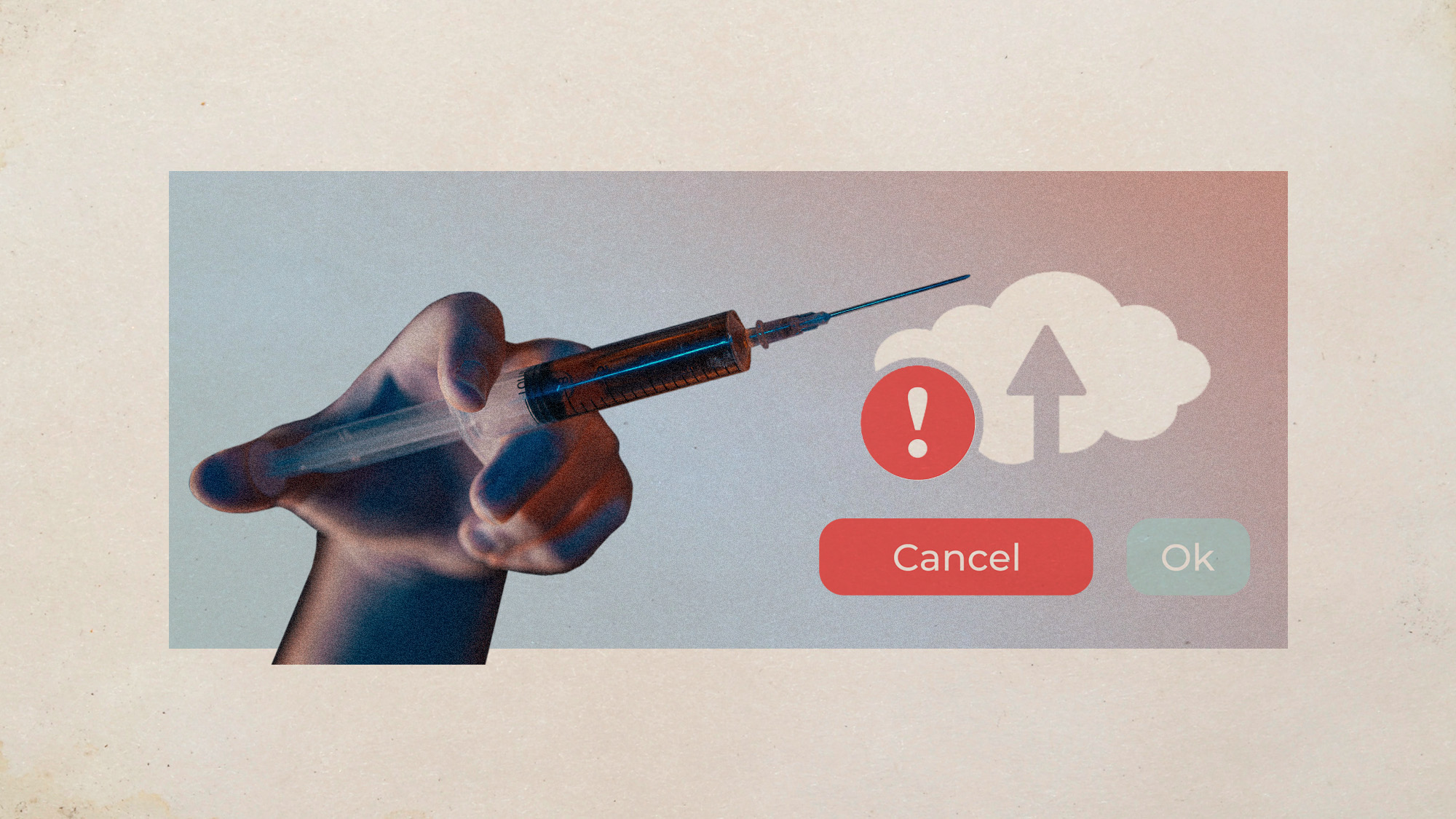Bad blood: how haemophiliacs were infected with HIV
As many as 2,000 British haemophiliacs died after being given tainted blood plasma in the 1970s and 80s

A free daily email with the biggest news stories of the day – and the best features from TheWeek.com
You are now subscribed
Your newsletter sign-up was successful
A public inquiry into a contaminated blood scandal which is believed to have led to the deaths of more than 2,000 British haemophiliacs over the past 30 years has finally got underway.
Described by Theresa May as “a tragedy that should never have happened”, it has been labelled the worst treatment scandal in the history of the NHS. The PM said it has “caused unimaginable pain and hurt for victims and their families for decades”.
What prompted the inquiry?
The Week
Escape your echo chamber. Get the facts behind the news, plus analysis from multiple perspectives.

Sign up for The Week's Free Newsletters
From our morning news briefing to a weekly Good News Newsletter, get the best of The Week delivered directly to your inbox.
From our morning news briefing to a weekly Good News Newsletter, get the best of The Week delivered directly to your inbox.
About 4,800 people with haemophilia were accidentally infected with hepatitis C or HIV in the 1970s and 1980s.
The cases can be traced back to the use of a new “wonder drug” made from the pooled blood plasma of tens of thousands of donors to help treat the rare condition, which prevents blood from clotting properly.
During this period, the NHS imported Factor 8 from the US, where only later was it revealed that high-risk groups like prisoners had been paid to give blood.
The Daily Telegraph says “two previous inquiries have been branded a whitewash by campaigners”.
A free daily email with the biggest news stories of the day – and the best features from TheWeek.com
What happened to those given Factor 8?
In 2015, a parliamentary report found that about 7,500 patients had been infected by blood products. Of those, some 1,200 were infected with HIV, including many young children of primary school age. Only 250 are still alive today.
An even greater number are believed to have contracted hepatitis C, which affects more than 150 million people around the world, and can lead to liver failure and cancer.
Since the inquiry was announced in July 2017, campaign groups estimate that more than 150 infected haemophiliacs have died, raising the total number of fatalities to more than 2,400.
What are they hoping to find out?
The first day of the inquiry, which is expected to last up to three years, “was packed with victims and bereaved relatives” reports The Guardian. “Many wore black, red and yellow ties – black in memory of those who have died, red for HIV and yellow for hepatitis C. There were rounds of applause as the judge and witnesses spoke.”
However, the first day also led to controversary, after the government announced it will set aside less than £30m to compensate victims.
Campaign groups have responded angrily to what they say is a “derisory offer” and an “attempt to overshadow an important day for the victims”.
A total of £75m has now been set aside for financial support for those in England affected by the scandal, but Jason Evans, founder of the Factor 8 campaign group, said the new offer from the government would equate to less than £900 per person.
He said the government had failed to take responsibility for the scandal.
“Victims and relatives want to know why warnings about the safety of the medicine may have been ignored,” the BBC reports, “why plans to make the UK self-sufficient in blood products were scrapped, and why many documents and patient records appear to have been lost or destroyed”.
-
 Buddhist monks’ US walk for peace
Buddhist monks’ US walk for peaceUnder the Radar Crowds have turned out on the roads from California to Washington and ‘millions are finding hope in their journey’
-
 American universities are losing ground to their foreign counterparts
American universities are losing ground to their foreign counterpartsThe Explainer While Harvard is still near the top, other colleges have slipped
-
 How to navigate dating apps to find ‘the one’
How to navigate dating apps to find ‘the one’The Week Recommends Put an end to endless swiping and make real romantic connections
-
 A real head scratcher: how scabies returned to the UK
A real head scratcher: how scabies returned to the UKThe Explainer The ‘Victorian-era’ condition is on the rise in the UK, and experts aren’t sure why
-
 How dangerous is the ‘K’ strain super-flu?
How dangerous is the ‘K’ strain super-flu?The Explainer Surge in cases of new variant H3N2 flu in UK and around the world
-
 The stalled fight against HIV
The stalled fight against HIVThe Explainer Scientific advances offer hopes of a cure but ‘devastating’ foreign aid cuts leave countries battling Aids without funds
-
 The ‘menopause gold rush’
The ‘menopause gold rush’Under the Radar Women vulnerable to misinformation and marketing of ‘unregulated’ products
-
 Bluetoothing: the phenomenon driving HIV spike in Fiji
Bluetoothing: the phenomenon driving HIV spike in FijiUnder the Radar ‘Blood-swapping’ between drug users fuelling growing health crisis on Pacific island
-
 How the care industry came to rely on migrant workers
How the care industry came to rely on migrant workersThe Explainer Government crackdown on recruiting workers abroad risks deepening care sector crisis, industry leaders warn
-
 Could medics' misgivings spell the end of the assisted dying bill?
Could medics' misgivings spell the end of the assisted dying bill?Today's Big Question The Royal College of Psychiatrists has identified 'serious concerns' with the landmark bill – and MPs are taking notice
-
 Washwood Heath: Birmingham's pioneering neighbourhood health service
Washwood Heath: Birmingham's pioneering neighbourhood health serviceIn the Spotlight NHS England chair says there is a 'really good argument this is the model for the future'